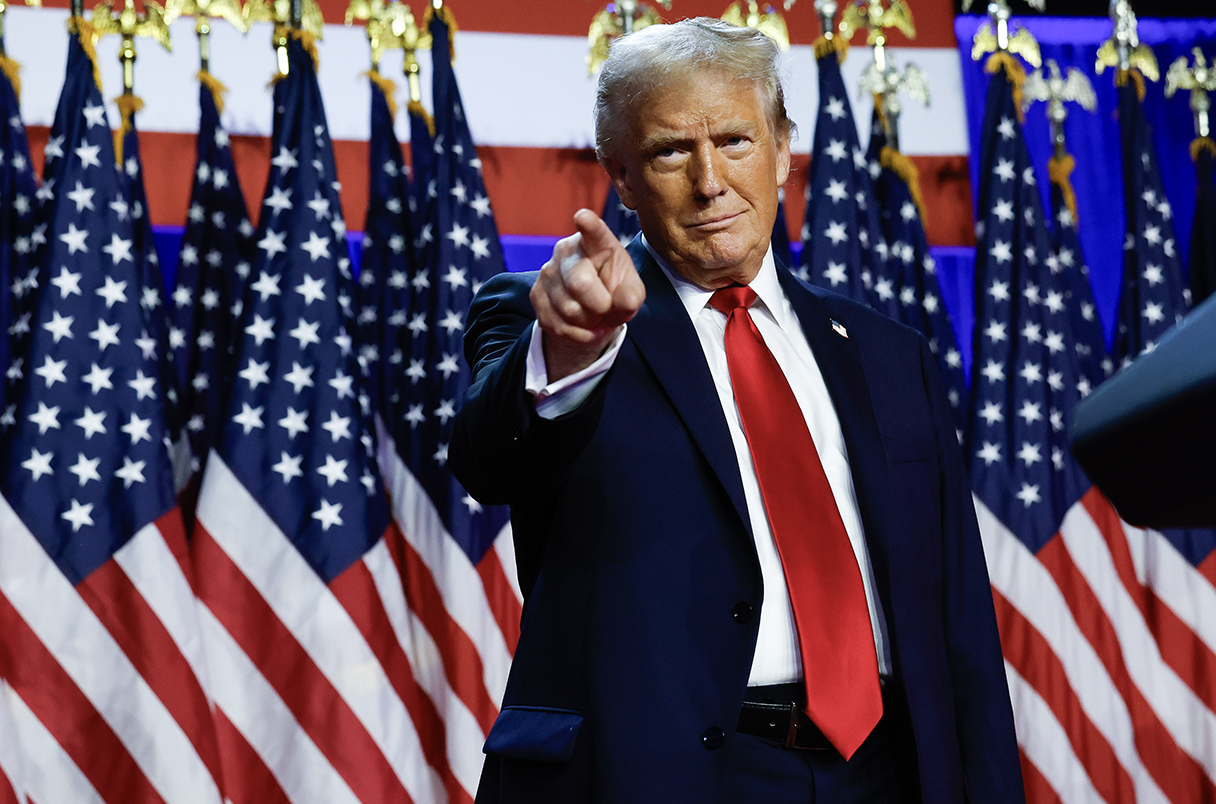Donald Trump Signs “One Big Beautiful Bill”: How It Can Reshape the Crypto Market
05.07.2025 9:56 2 min. read Kosta Gushterov
U.S. President Donald Trump has officially signed his sweeping policy bill into law, enacting one of the most consequential pieces of legislation of his presidency.
The 870-page package, passed by a razor-thin margin in Congress, was signed during a high-profile ceremony at the White House ahead of Independence Day celebrations.
The signing event featured a flyover of B-2 bombers and F-22 fighter jets, the same aircraft used in recent strikes on Iranian nuclear facilities. Trump was joined by Republican lawmakers, military pilots, and top aides as he hailed the bill as a turning point for the American economy and national security.
“This will unleash a new era of American prosperity and strength,” Trump declared from the South Lawn balcony, brushing aside concerns from Democrats and dissenting Republicans who warned about rising debt and deep cuts to social programs. Despite those objections, Trump said the bill delivers on core promises made to American workers, families, and veterans.
The legislation includes:
- An extension of Trump-era 2017 tax cuts
- New tax breaks for tips, overtime pay, and Social Security income
- A $150 billion increase in defense spending
- $100 billion allocated to ICE for immigration enforcement
- Steep cuts to Medicaid and low-income assistance programs
- Rollbacks of clean energy tax credits introduced during the Biden administration
Trump also praised the bill for what he called the “largest spending cut ever passed” that “nobody will even notice,” referring to reductions in food assistance and healthcare subsidies. The president emphasized that the bill represents a new standard in “America First” fiscal policy, combining military might, border control, and tax relief into a single legislative framework.
How the Bill Could Affect the Crypto Market
Trump’s economic package could indirectly benefit the crypto industry by increasing disposable income through tax exemptions and overtime relief. If consumer spending rises, interest in alternative assets like Bitcoin may follow. Additionally, the bill’s sharp boost to defense and border security spending, paired with reduced regulatory focus on green finance, signals a pro-business shift that may ease pressure on crypto firms.
However, the surge in federal debt and social program cuts could trigger public backlash and market instability, both of which historically correlate with increased crypto demand as a hedge. The bill’s political divisiveness may further fuel uncertainty around fiscal policy, prompting institutional and retail investors to reconsider Bitcoin as a store of value in an evolving economic climate.
While the bill isn’t crypto-specific, its broader economic ripple effects could shape sentiment and liquidity across digital asset markets in the coming months.
-
1
Binance Could Introduce Golden Visa Option for BNB Investors Inspired by TON
07.07.2025 8:00 1 min. read -
2
Weekly Recap: Key Shifts and Milestones Across the Crypto Ecosystem
06.07.2025 17:00 4 min. read -
3
Trump Imposes 50% Tariff on Brazil: Political Tensions and Censorship at the Center
10.07.2025 7:00 2 min. read -
4
Key Crypto Events to Watch in the Next Months
20.07.2025 22:00 2 min. read -
5
USA Imposes Tariffs on Multiple Countries: How the Crypto Market Could React
08.07.2025 8:30 2 min. read
Bitwise CIO: The Four-Year Crypto Cycle is Breaking Down
The classic four-year crypto market cycle—long driven by Bitcoin halvings and boom-bust investor behavior—is losing relevance, according to Bitwise CIO Matt Hougan.
Strategy to Raise Another $2.47 Billion for Bitcoin Acquisition
Strategy the company formerly known as MicroStrategy, has announced the pricing of a new $2.47 billion capital raise through its initial public offering of Variable Rate Series A Perpetual Stretch Preferred Stock (STRC).
AI Becomes Gen Z’s Secret Weapon for Crypto Trading
A new report from MEXC reveals a striking generational shift in crypto trading behavior: Gen Z traders are rapidly embracing AI tools as core components of their strategy.
3 key Reasons Behind Today’s Crypto Market Drop
The crypto market shed 1.02% in the past 24 hours, led by a sharp Bitcoin drop and fading altcoin interest.
-
1
Binance Could Introduce Golden Visa Option for BNB Investors Inspired by TON
07.07.2025 8:00 1 min. read -
2
Weekly Recap: Key Shifts and Milestones Across the Crypto Ecosystem
06.07.2025 17:00 4 min. read -
3
Trump Imposes 50% Tariff on Brazil: Political Tensions and Censorship at the Center
10.07.2025 7:00 2 min. read -
4
Key Crypto Events to Watch in the Next Months
20.07.2025 22:00 2 min. read -
5
USA Imposes Tariffs on Multiple Countries: How the Crypto Market Could React
08.07.2025 8:30 2 min. read


